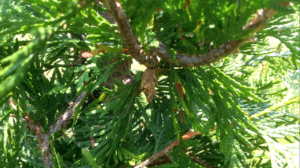
Call Scientific Plant Service for Baltimore bagworm control services when you notice these subtle, vertical-hanging bags.
Bagworm Extermination Services in Baltimore, MD
Since 1957, Scientific Plant Service has provided our Baltimore community with the considerate lawn care services they require. One of our crucial services is pest control, including bagworm control services. Bagworms infect plants and feed on them until they are dead and brown. Understanding how to spot and remove these infestations is a job for the experienced pest control experts at Scientific Plant Service. Our team is licensed to provide the care you need. Contact us today if you need Baltimore bagworm control services.
The Habits and Life Cycle of Bagworms
The “bagworm” is the larval or caterpillar stages of moths. The bagworm hatches from its egg in May or early June and begins constructing its home (“bag”) out of its silk and interwoven leaves and stems from the host plant. This insect is well-disguised and often mistaken for being part of the plant on which it is feeding. The insects are finished feeding by mid to late August when their bags have reached a size of about one to two inches long.
The larva then fasten their bags to a branch, seal themselves inside, and pupate. The males emerge as adult moths with transparent, one-inch-span wings. The females do not have wings. After mating, the female lays about 1000-1500 eggs before dying. Those eggs overwinter inside her bag and hatch the following year.
How Can You Spot Bagworms?
As a bagworm grows, it consumes entire leaves or needles while increasing the size of its vertically-suspended bag. Severely infested plants will appear to be wriggling as worms stick their heads and legs out from their bags, which twitch as the worms feed. Additionally, large deposits of fecal matter (frass) will collect under the host plant as the foliage is consumed.
Initial damage consists of small brown spots on a leaf’s epidermis. As feeding spreads, more leaves turn completely brown, and needles fall off, leaving behind huge defoliated sections of your plant or brown, dead needles.
It is important to note that if bagworms have devoured a plant’s leaves before they are done developing, they will move to a neighboring plant to keep feeding.









